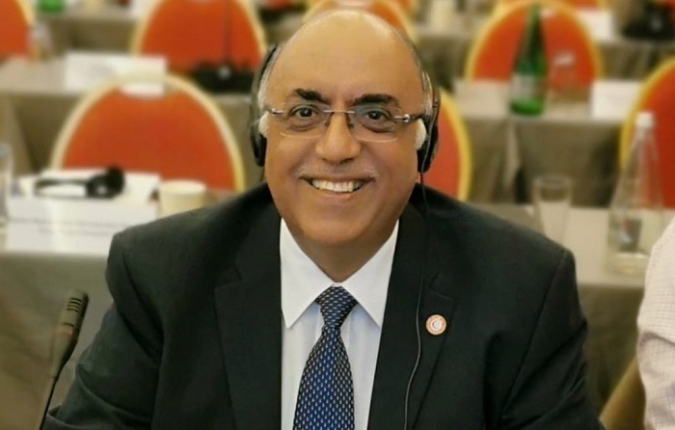Bahrain Red Crescent Society (BRCS) took part in the annual meeting of the legal advisors of the National Societies organised by the International committee of the Red Cross (ICRC) and the International Federation, which was held recently at ICRC headquarters here.
The Secretary-General of BRCS Dr. Fawzi Amin confirmed that society’s participation in this annual meeting is part of Society’s efforts to represent Bahrain effectively in the ICRC meetings, thus to achieve relief objectives for which the movement is working worldwide.
Dr. Amin praised the ongoing consultation and cooperation between the Bahraini Red Crescent, the Ministry of Foreign Affairs and the Ministry of Justice through the National Committee for the Development of International Humanitarian Law, which is chaired by His Excellency the Minister of Justice and pays particular attention to carrying out the duties entrusted to it.
During meeting, Dr. Amin confirmed on the importance of International meetings to positioning Bahrain on the International Humanitarian Actions Map. It also provides an opportunity to share ideas and expertise with Red Crescent societies around the world and coordinate with them to cope with relief appeals.
He explained that this meeting is held every four years and attended by the BRCS represented by the Secretary-General as well as a representative of the Ministry of Foreign Affairs of the signatories to the Geneva Conventions, through which these agreements are updated and new agreements are presented.
A panel discussion was held during the meeting on combating terrorism, international humanitarian law and humanitarian action in accordance with humanitarian principles in areas of conflict and terrorist operations.
The panel discussed the application of international humanitarian law to counter-terrorism activities, and the restrictions imposed by counter-terrorism measures on impartial humanitarian action.
Contemporary issues and challenges related to dealing with the dead in armed conflicts and other situations of violence and natural disasters were discussed within the framework of Islamic law and international humanitarian law. The Islamic and international legal systems have established provisions designed to protect and respect the dignity of the dead and to complement each other in order to achieve such protection in specific contexts and situations involving Muslim parties.
The meeting also discussed crimes of sexual violence. The discussion explained that international humanitarian law requires States to criminalize rape and other forms of sexual violence in their local legal systems to ensure that such war crimes can be investigated and prosecuted. The meeting reviewed how the country’s commitment to different national contexts in international law.
The panel discussed the preservation of the humanitarian space in migration, the challenges faced by humanitarian actors in reaching migrants, the internally displaced people issue and the need to respond quickly to their humanitarian needs.
A meeting will be held to discuss the set-up for the 33rd International Meeting, review of the agenda and discussion of the draft resolutions to be adopted in December, and a workshop on “Incorporation of the Badge Act” will be held in each country’s local law.

